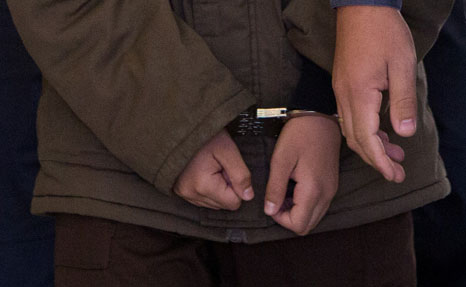Hebron Shooting Demands IDF Investigation
IDI's Prof. Amichai Cohen explains why Israel had to launch a swift and effective investigation into the actions of the solider that shot a neutralized terrorist in Hebron. This article originally appeared on the Times of Israel.

The investigation of the soldier suspected in shooting the terrorist in Hebron is still ongoing. Initial video footage and responses by the Minister of Defense and the IDF Chief of Staff raise serious suspicions about this soldier’s actions. Nonetheless, until a final verdict is handed down by a competent court, the soldier should be granted the benefit of the doubt. Having said that, it seems this case requires a swift and effective investigation. Why? First of all, such an investigation is required for Israel’s own sake. The Chief of Staff summarized it well in his letter to all IDF soldiers publicized last week: “It is a duty of the IDF to preserve the IDF’s morals and values, so that the IDF will remain the people’s army in a Jewish and democratic state.” There are those who claim that there is no place to investigate, and certainly not to convict, a soldier who was in combat action. Further, there is concern that such an investigation would cause IDF soldiers to be hesitant to use force when it is needed, and that the investigation would damage the morale of the IDF. I disagree. Adopting such a position would not protect IDF soldiers. If anything, it would endanger them, and hinder Israel’s war on terrorism. Shooting a person who does not pose any danger (which may have been the case in this instance) is considered a violation of international law. Whether we like it or not, in pursuing Israel’s war on terrorism, Israel must take into account law, and specifically international law. This is because the international community created judicial mechanisms in recent decades, intended to enforce these laws. In the past two decades, an international criminal tribunal operated in former Yugoslavia. More than 160 persons were indicted for war crimes that happened in various armed conflicts in that area in the 1990s. The International Criminal Court (ICC) at The Hague has been operating since 2003. Various countries apply the concept of “universal jurisdiction,” allowing these countries to adjudicate cases of alleged serious violations of international law that have happened anywhere in the world. In the past, several attempts were made to apply these international mechanisms toward IDF soldiers. Universal jurisdiction proceedings were also initiated in several countries. There is a Palestinian request before the ICC, asking it to investigate and prosecute alleged violations of international law by Israeli soldiers. The infamous Goldstone report suggested that measures should be taken against Israelis. To all these claims, the Israeli response was clear: there is no need or justification for any international intervention or proceeding. Israel has an independent mechanism for investigating alleged violations. If there is any wrongdoing by Israeli soldiers, Israel deals with it. Israel’s independent Military Advocate General’s unit is perfectly capable of investigating any suspicion without international involvement. The validity of this claim hinges on one fact: when a serious suspicion of wrongdoing arises, Israel does its best to investigate it. Hence, accepting any suggestion of quashing the investigation of the Hebron soldier altogether, of pardoning the soldier, or even of leniency, would have far reaching implications. Any such move would bring into question the Israeli position of rejecting international involvement in the conflict and the integrity of its internal investigative mechanisms. An international investigation would have far more negative implications on the morale of soldiers and their ability to fight than an Israeli investigation. However, the approach that rejects a full independent Israeli investigation might lead exactly to that result. If Israel chooses not to investigate allegations against IDF soldiers fully, the chances of an international investigation grow significantly — perhaps not against this specific soldier, but surely against many other soldiers in future IDF operations. This op-ed originally appeared in the Times of Israel. Prof. Amichai Cohen is a Research Fellow at the Israel Democracy Institute, where he works on the National Security and Democracy project.
